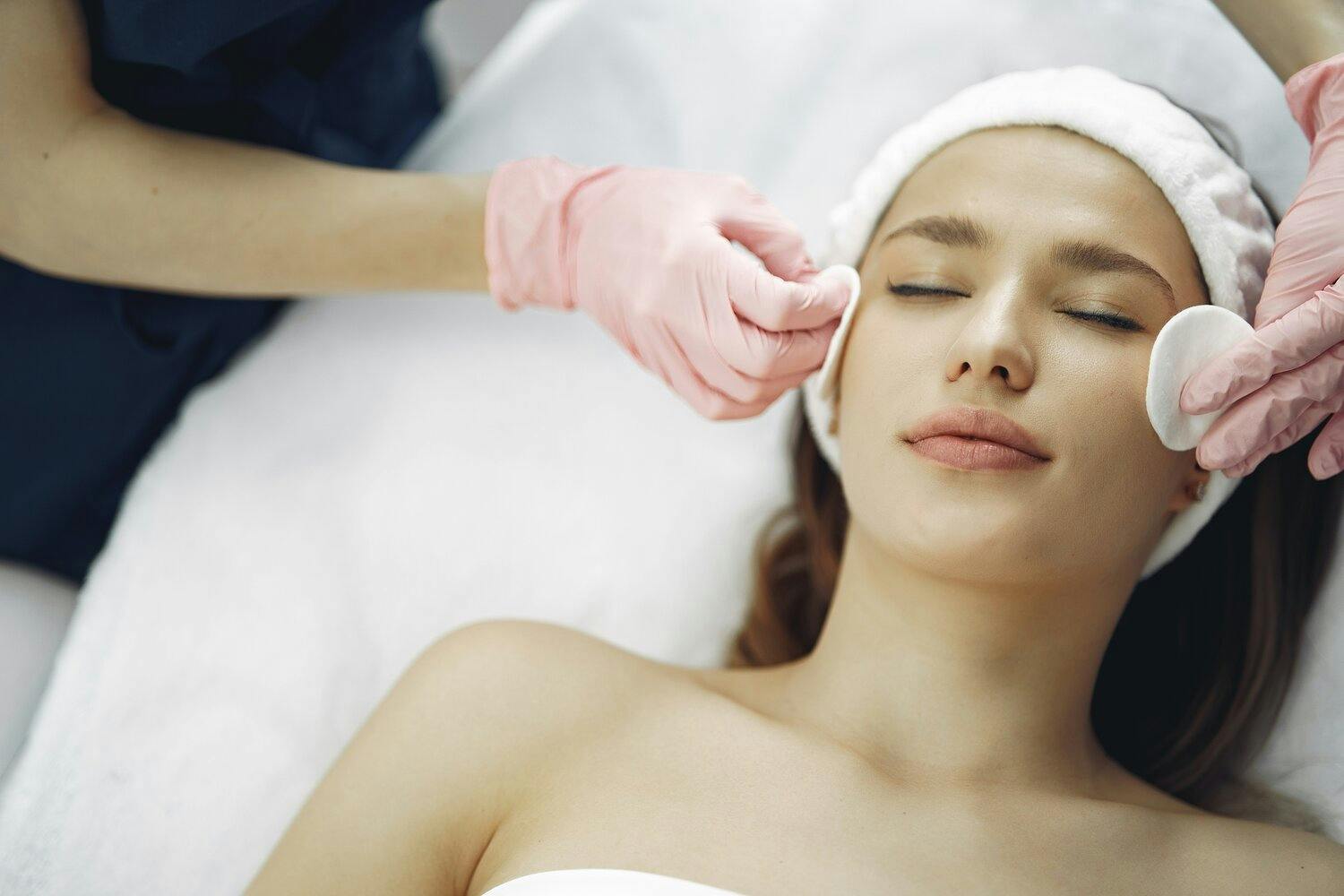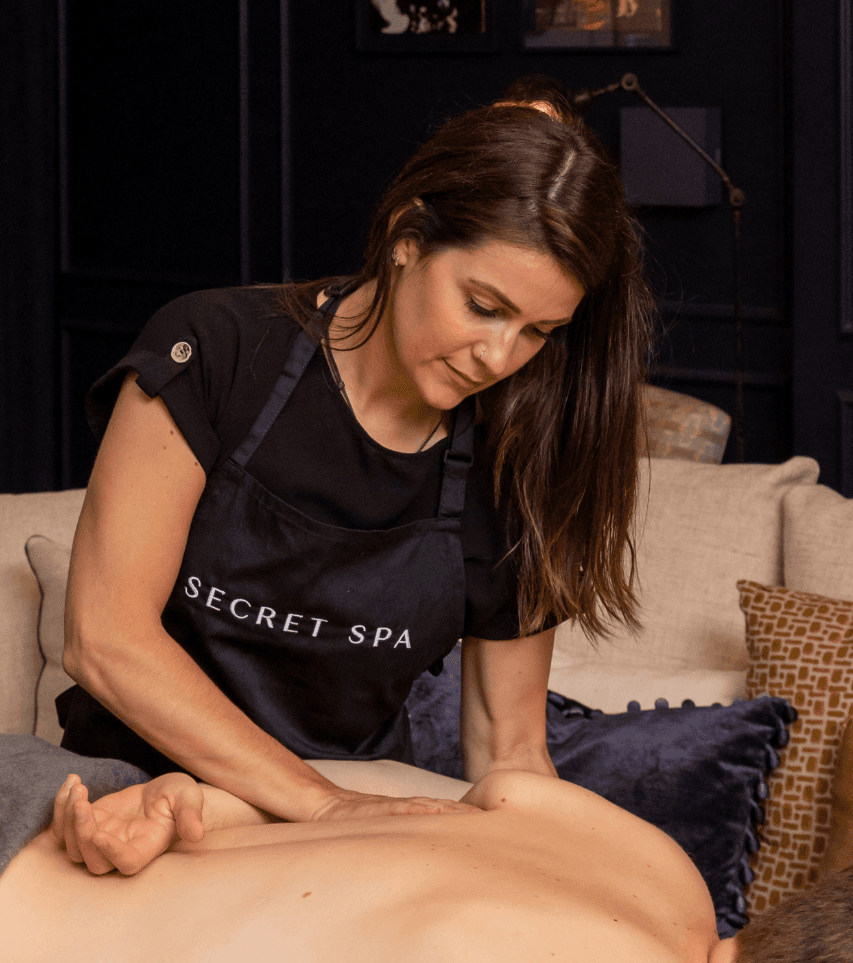Skin & stress: do you have 'skinxiety'?
Oct 8, 2021

With World Mental Health Day on 10th October, the eyes and ears of the world are trained on how our mental state may affect our bodies as well as our minds. As the largest organ a human has, the skin is one area that can be adversely affected by our stress and anxiety levels. So, how are skincare and mental health connected, and could you have ‘skinxiety’? We delve into how anxiety and stress can affect how your skin looks, feels, and behaves. Plus, we will look at common skin conditions caused by stress and anxiety, such as acne, psoriasis, hives, eczema and rosacea. We’ll also cover how you can care for your skin to ease and minimise the effects of anxiety and stress.
Skin and stress: the skin conditions anxiety & stress can cause
So let’s start with the basics. Can stress and anxiety cause skin problems? Yes, indeed they can. Anxiety and stress cause the body to behave in certain ways, and the stress hormone cortisol may be released. Does anxiety cause oily skin? Yes, because higher levels of cortisol can result in excess oil production by the glands in your skin. Your body may also ramp up its immune response, which can cause breakouts due to increased skin sensitivity (as if we weren’t stressed enough!).In some cases, anxiety and skin problems are very much connected. Here is an outline of the main skin conditions caused by anxiety and stress.
Acne
While acne is not, strictly speaking, caused by anxiety or stress, they can certainly trigger a breakout – or make existing symptoms worse. Leading dermatologists agree that this is often the case. What’s more is that an acne breakout often leaves the sufferer with small open sores – and all wounds take longer to heal when the body is under stress. This is again down to increased inflammation and stress hormones in the body. Acne can be successfully treated with the right skincare ingredients, so there’s no need to suffer in silence. Simply ask your beauty therapist for their advice on what might work best in your case. Secret Spa facialist, Ellece T. advises: ‘If you are looking for an organic product, I recommend using products that contain green tea. Green tea fights acne and has anti-inflammatory properties that can reduce pain, swelling, and soreness of wounds or injuries. It can speed up wound healing time and limit scarring.‘2% BHA Liquid Exfoliant is also beneficial. It has salicylic acid which removes dead skin cells on the skin’s surface and within the pores. It has anti-inflammatory properties, which help to reduce blemishes and blackheads for a more clear complexion overall.’
Psoriasis
Psoriasis is characterised by thick, scaly, red patches of skin (made well-known by Kim Kardashian). Again, this is down to an overactive immune response causing extreme skin inflammation. A study carried out in the UK found that those who became stressed about their psoriasis actually experienced a proportional increase in their symptoms. So how do you break this vicious cycle? Typical and effective psoriasis treatments may include the application of rich moisturising formulas, creams containing retinol (synthetic vitamin A) or even the use of coal tar soap. Do consult your dermatologist or GP for further advice.
Hives
If you’ve ever woken up to, or got home to find, an outbreak of swollen pink lumps spread across your skin, then you may be suffering from hives. These annoying reddish welts aren’t only unsightly, they can also cause the sort of intense itching that can lead to restless nights – disturbing our much needed beauty sleep. While hives are most often caused by an adverse or allergic reaction to an insect bite, medication, pollen or food, they can also be caused by a state of heightened stress or anxiety. The good news is that hives are normally gone within a day. Some of the most effective treatments are topical skin formulas as well as antihistamine medication, which can help to reduce the body’s overactive immune response.
Eczema
Eczema is one of the most common skin conditions in the UK. It is more commonly seen in babies, but can also occur during childhood or even adulthood. Again, eczema usually strikes those whose immune responses tend to go into overdrive – in response to anxiety or stress.As eczema can weaken the epidermis, the skin becomes more prone to dryness and irritation. This may present as patches of pink or peachy toned skin that may also be flaky. They may also itch, but please don’t be tempted to scratch as that will only make matters worse and damage your skin.The first defence against an eczema outbreak is to add vital moisture, as this will assist it in healing naturally. In the first instance, ask your therapist to recommend an ultra moisturising formula. If the eczema affects your body, taking a lukewarm bath containing baking soda or oats can be soothing.
Rosacea
If your face often becomes flushed after being out in the sun, in overheated rooms or after drinking alcohol, then you may have rosacea. This specific kind of skin redness tends to be caused by circumstantial factors – as well as stress or anxiety. The best treatments for rosacea contain nurturing ingredients that can calm irritated, inflamed skin. Any products that are made for sensitive skin are ideal, and if you are spending time outdoors, applying a good mineral sunscreen formula is essential. Even during winter, when those harmful UV rays are still capable of wreaking havoc.A beauty professional may also recommend the application of certain skincare products that will have a calming effect on the skin.
Simple ways to reduce the effects of stress & anxiety on your skin
While it’s unrealistic to suggest that you might be able to avoid anxiety and stress altogether, there are some simple steps you can take to help reduce their effects on your skin. These include staying hydrated, exercising, relaxing, taking much needed me time – and even talking. The number one golden rule is never to neglect your skin. Establish and stick to a good skincare routine each morning and night, ideally using products recommended by an experienced dermatologist or facialist.Also, make sure you drink plenty of water. This hydrates your skin from the inside. Regular exercise can help to ensure healthy, glowing skin. Taking the time to work out can also aid your mental health, helping you to unwind so you’ll enjoy better quality beauty sleep. On that note – sleep is vital. Aim for eight hours per night if you can, dropping off and waking at the same times where possible. Talking through your worries, whether with a friend or therapist, can also be very beneficial for your state of mind, as well as the condition of your skin.
Need to switch off and relax? Book a relaxing massage with one of your mobile beauty therapists, or a revitalising facial to address any skin problems you have. Our therapists are fully qualified and will be able to address any areas of concern and advise you on the best course of action.
Book our
experts today
Related Articles
What is microdermabrasion and what are the benefits?
Oct 9, 2020
How to care for dry lips in winter
Jan 31, 2022
Facials 101: How often to have a facial, aftercare advice and benefits
May 12, 2020
What is dermaplaning and should you try it?
May 18, 2021
10 best superfoods for glowing skin
Feb 25, 2021
How to revive hangover skin
Aug 6, 2021






